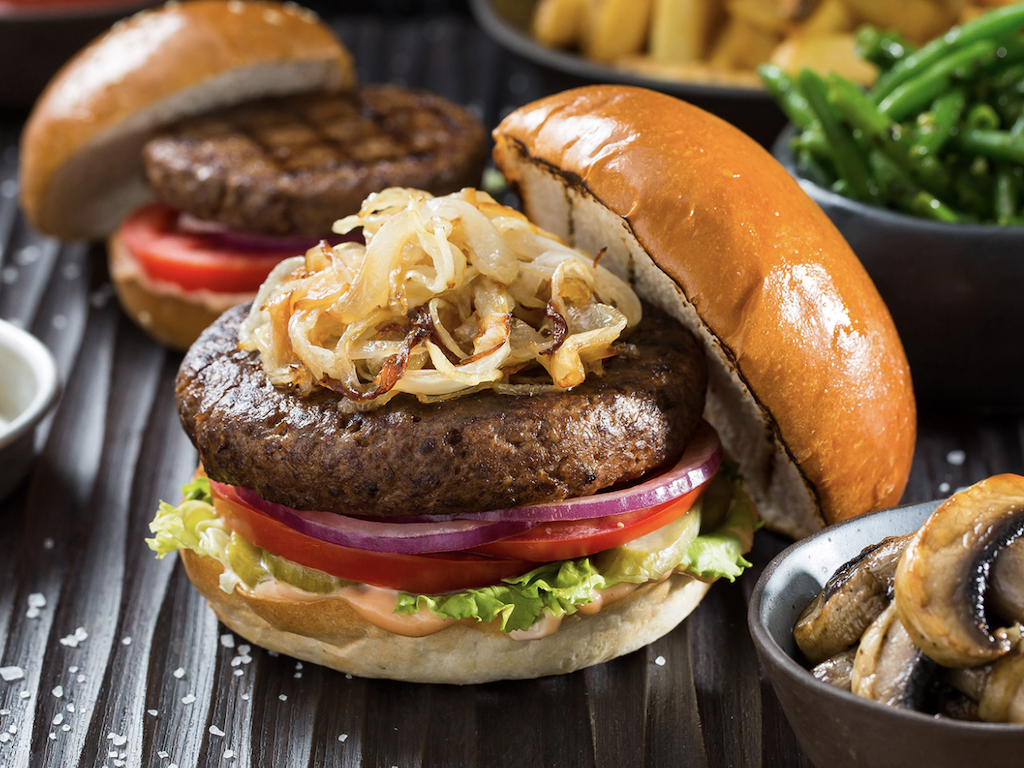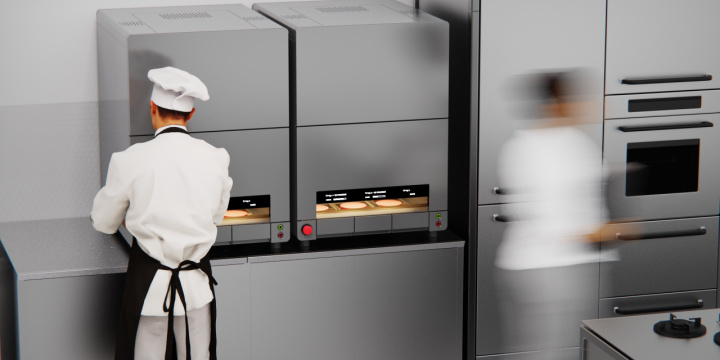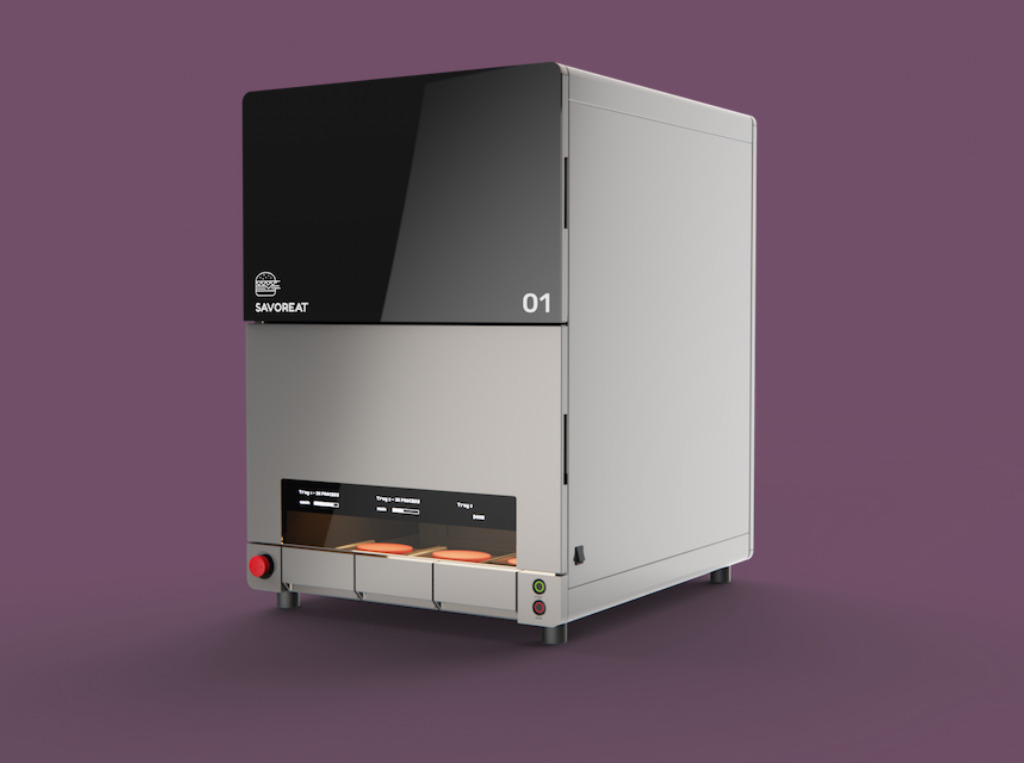Sodexo to Launch SavorEat’s 3D-Printed Plant-Based Burger Robot Chef at University of Denver
4 Mins Read
Two years after announcing their US higher education partnership, Israeli food tech startup SavorEat and French catering giant Sodexo are finally launching the first 3D-printing robot for plant-based burgers at the University of Denver.
In 2021, Sodexo North America announced it would be piloting SavorEat’s robot chef system across canteens in higher education institutions in the US. Now, the collaboration will enable students at the University of Denver to try SavorEat’s 3D-printed vegan burgers.
During the announcement of the Sodexo-SavorEat deal in 2021, the caterer said that it was in talks to reach an agreement to distribute the Israeli startup’s products within the North American market. In addition, it revealed that there are plans to launch “additional pilots” in the future, with the view to expand Sodexo’s plant-based offerings in the long term.
Sodexo, a major provider of plant-based meals in the US’s education system, has pledged to cut its carbon footprint by 34% by 2025. In line with that, it announced last year that it plans to turn 42% of its college and university menus plant-based by that year, meaning hundreds of educational institutes in the US are set to feature new plant-forward menus. Its partnership with SavorEat is an extension of this commitment.
SavorEat’s 3D-printing plant-based meat robot

Founded in 2018, SavorEat’s robot chef system prints plant-based meats based on consumers’ preferences. It went public on the Tel Aviv Stock Exchange in 2021, and already tested this system with local hamburger chain BBB last year. SavorEat, which has raised close to $18M in total funding, added to its collaborations last year by teaming up with Israeli catering giant Yazrin-Sella.
“It’s a mix of innovation of meat alternative and digital manufacturing where we can also cook the product,” SavorEat CEO Racheli Vizman told Reuters when announcing the BBB deal. “From the beginning, we believed that the food industry is in need of significant changes in order to remain relevant.
“We choose to boldly look at the changes of our future and to challenge the status quo in the food industry. Through the technology we have developed, we will be able to get to know our customers better, respect them and give expression to their changing needs.”
Speaking about SavorEat’s link-up with Sodexo last year, she said: “I am convinced that Sodexo’s expertise in the international catering market and particularly North America will significantly contribute to the development and acceleration of the penetration rate of our products in the international market, with an emphasis on the US market.”
Husein Kitabwalla, operations and food transformation CEO at Sodexo North America, had added: “Sodexo’s partnership with SavorEat will further extend our ability to deliver the plant-based foods our clients’ customers are demanding in increasingly growing numbers.”
It’s not just the US where plant-based food is making a dent in university menus. This week, more than 650 academics and campaigners in the UK wrote an open letter to British universities calling for a switch to a 100% vegan catering menu to fight the climate crisis, coordinated by the Plant-Based Universities campaign. The Universities of Stirling, Birmingham, Queen Mary, London Metropolitan, Kent, University College London and Cambridge have all previously voted to introduce a fully plant-based menu at their eateries.
Artificial intelligence in the plant-based industry

This is just the latest of a host of developments in the vegan sector leveraging future-facing tech and artificial intelligence (AI). Earlier this month, US food experts launched GreenProtein AI, a project tapping AI and machine learning to optimise the extrusion and texture of plant-based meat.
Latin American food tech brand NotCo has been using AI and machine learning since 2015 to find the best plant-based alternatives for animal products. The patented AI tech, called Giuseppe, is the brains behind the company’s alt-milks, mayo and burgers. Similarly, Singapore’s Howw Foods uses AI to make Hegg, its vegan powdered egg product.
Moreover, a bevy of companies and brands have collaborated with AI companies to develop plant-based products. Bel Foods – the French cheese giant behind Babybel – has partnered with California’s Climax Foods to make vegan products, while industry giant Danone is working with Californian AI firm Brightseed to discover hidden nutrients and compounds in plant crops.
Similarly, mycelium meat producer Meati teamed up with AI company PIPA to accelerate and expand its understanding of the health and nutrition benefits of its nutrient-rich products.
AI is also being used as a marketing tool. US vegan cheese startup Pleese Foods unveiled a campaign last month, where it employed AI to generate whimsical imagery of cheese as a flourishing crop and being grown on trees.



